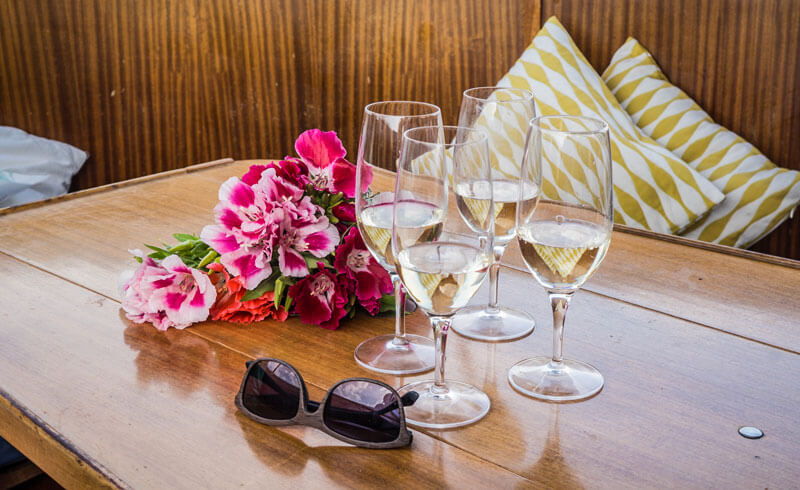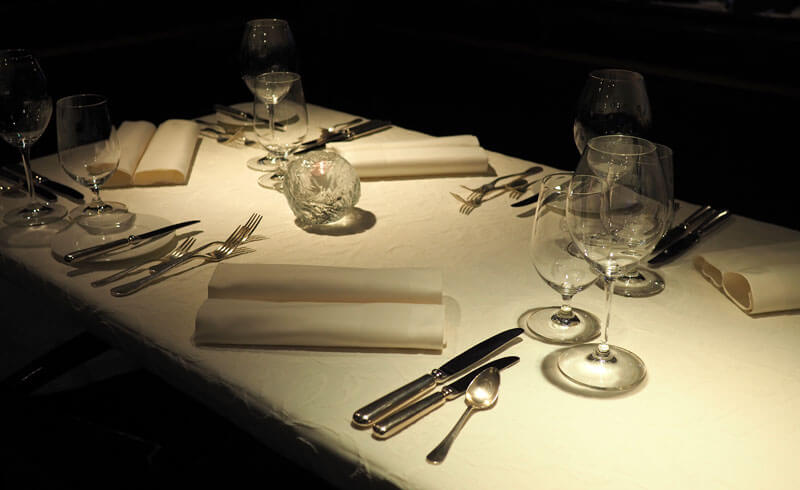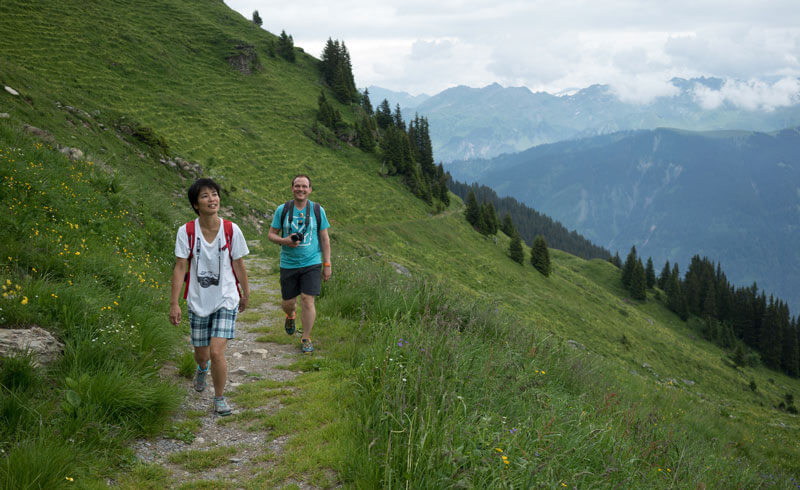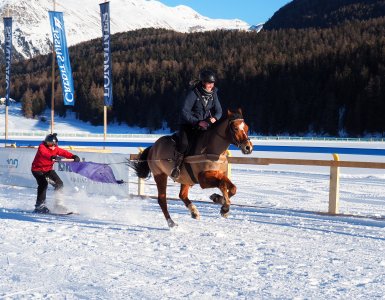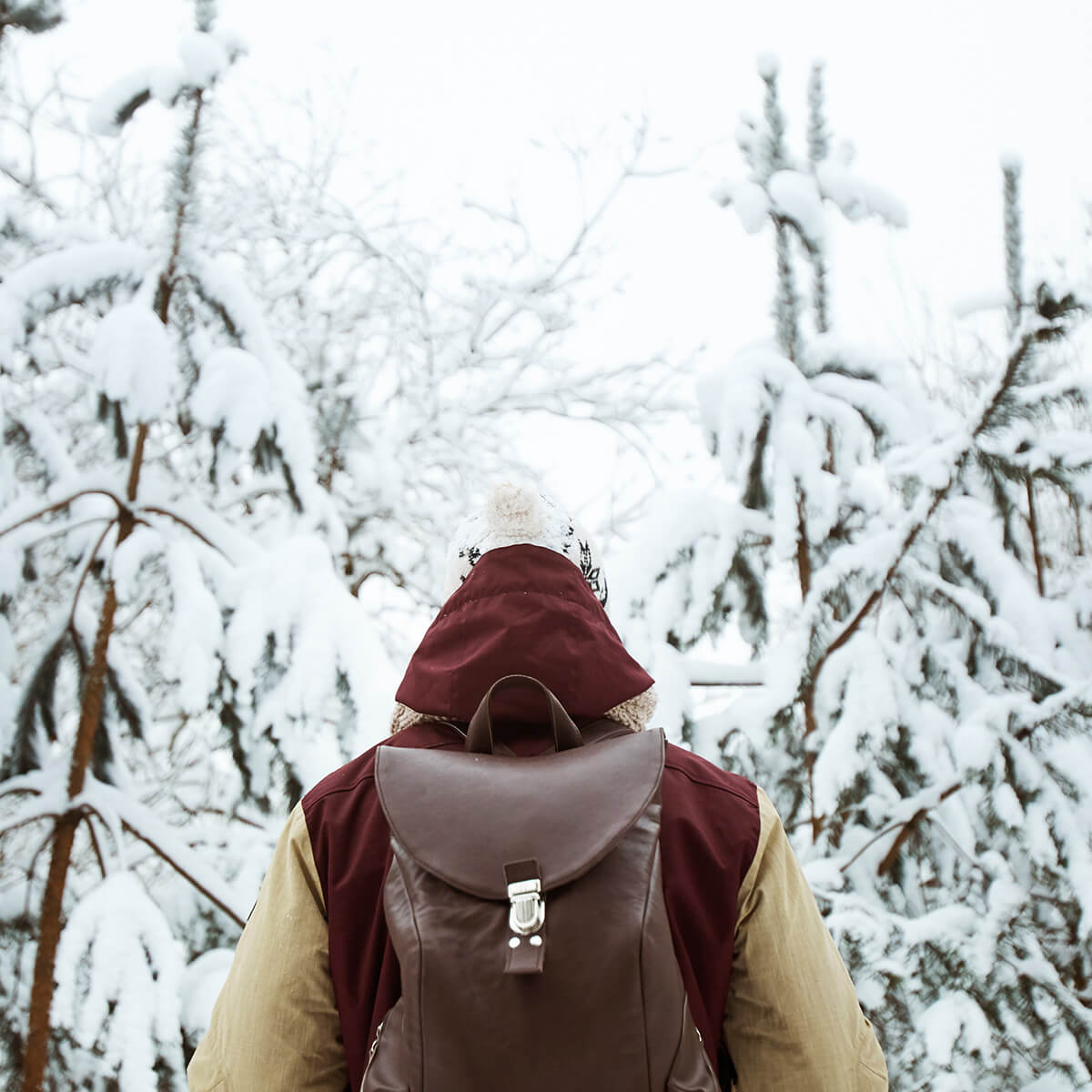There are a number of Fettnäpfchen to step into when you make your first attempts at socializing in Switzerland. (Fettnäpfchen is Swiss German for "mistakes waiting to happen.) It starts with the way you address people and ends with how you cut your steak.
In order to help you prevent some of the more embarrassing blunders, we have compiled this non-exhaustive primer on etiquette in the German speaking part of Switzerland.
Informal Greetings
When greeting someone on the street, on the train or in a store, simply say Grüezi (Zürich), Grüessech (Bern) or Guete Daag (Basel). In any case, add … mitenand if you are greeting more than one person, such as in elevators or waiting rooms.
That is if you do not know this person on a first name basis! If you meet a friend, family member or close acquaintance, kiss them on the cheeks. Depending on the region, you need to kiss two or three times... When in doubt, kiss three times and use a friendly Sali or Hoi.
Finally, if you are in a hurry, you might want to avoid the American way of asking Hi, how are you? or Hallo, wie gahts? While no real answer is expected in the US, this type of question is seen as a sincere interest into exactly how someone is feeling that day... Alas, the answer may turn out to be lengthy.
Here is our dedicated post on how to say "hello" in Swiss German.
Formal greetings
When someone is introduced to you in a formal or business setting, make eye contact, shake their hand firmly and state Freut mich. Hand out a business card to everyone you meet for the first time.
Recalling someone's name is critical. Weave in the name in a greeting or when saying goodbye and it will reflect positively on you. Of course, this is easier said than done, because imagine having to recall all those Kellers, Müllers and Schmids after a networking event or a party.
If you thought you could greet others with a smile or a hug, you guessed wrong. It is important to use one of the recognized words like Grüezi to start the meeting off right. (While I like to give hugs to close friends, it also shows that I lived in the US.)
In the Swiss German speaking part, stick to the formal "Sie" until invited by the more senior person to use the informal "Du".
Etiquette on the phone
For starters, do not call a Swiss family after 9 PM. If you are calling a friend, this may be extended to 10 PM. Also, do not call someone’s home during lunch hour, either, as this is supposed to be a time to relax.
For bonus points, when you are on the phone with a stranger, write down their last name and mention it at the end of the call.
Visiting
A lot has been said about the punctuality of the Swiss. It is quite overrated, however, as it is perfectly fine to arrive one minute early or two minutes late to a meet-up. For example, if your friends expect you at 6:30 PM, you may arrive as early as 6:29 PM or as late as 6:32 PM. Enough said.
When visiting friends, always bring some flowers (odd numbers), a bottle of wine or sweets for the hosts, and something small for the kids.
When you join a party or social gathering, you should always make the rounds and shake everyone's hands – even children’s! The same applies for when you are getting ready to leave a party. Again, it is critical to repeat everyone’s name! If you cannot recall any names, follow right behind someone else and keep an ear cocked for those names!
My advice for parties: Arrive early and leave late. That way, you do not have to memorize everybody's name...
Table manners in Switzerland
It is considered rude to start drinking without a round of toasts! The first toast is always given by the host. Also, make sure to repeat someone’s name and look directly in their eyes when making cheers.
Never keep your left "revolver" hand underneath the table. This is considered rude and is sure to expose you as a newbie Instead, keep both hands in sight and use your left for the fork and your right for the knife – exclusively. This may need some practice but it is considered a standard in a dining situation.
Hiking etiquette in Switzerland
Last but not least, some very important hints regarding Switzerland's national sport: Hiking. The cardinal rule of greetings applies no matter how remote (or crowded) your hiking trail may be. Whenever someone crosses your path, you are expected to briefly look them in the eyes and greet them. In the Swiss German part, utter the words "Grüezi" - or simply "zi" on a busy day.
Who wouldn't want to greet yours truly?
When it comes to catching trains, buses and cable cars, the gloves are off. You best blend in with the Swiss when it comes to queuing: Don't do it. Make a run for the door the second it opens, elbow your way in and secure a seat. Nobody will look at you strange because this is Swiss etiquette at its purest form!
Are you ready to practice your greetings?
Grüezi: The pronunciation of this often used greeting is very delicate. Unless a Swiss German speaker has given you approval, you might want to avoid it and use Guete Tag or simply zi... If it sounds too much like Grützi, Grüüzi or Grüzzi, you will stick out as a beginner.
More information about Swiss etiquette
- More on customs and etiquette in Switzerland
- Swiss German Formality: Sie vs. Du

